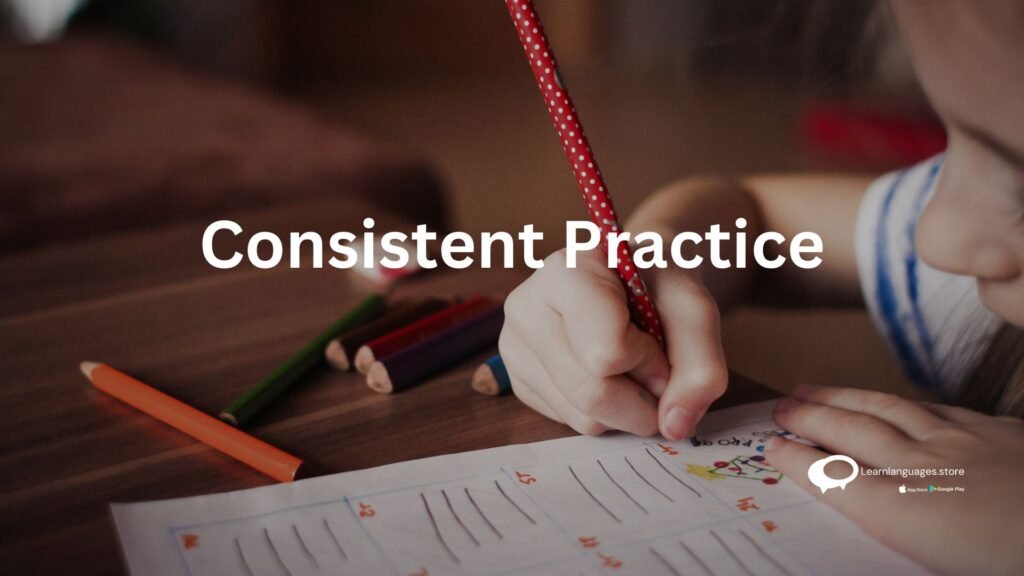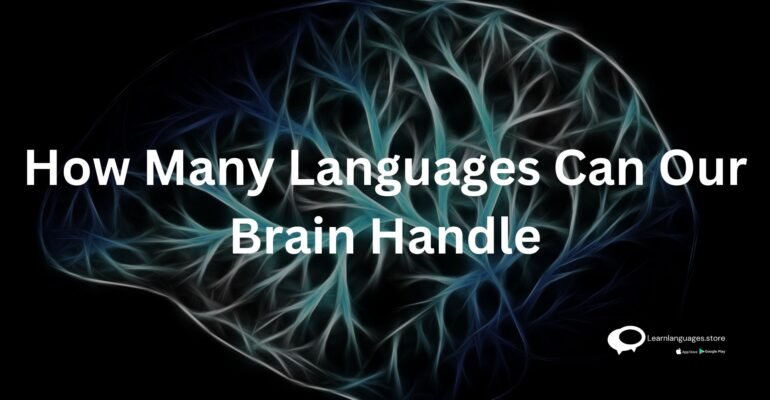How Many Languages Can Our Brain Handle
How Many Languages Can Our Brain Handle

It amazes us when we meet someone who speaks a language other than their native one. But what about those who gain even more knowledge? It should come as no surprise that those who study more than one or two languages have a significant cognitive advantage over others. Languages not only help you multitask and improve your memory, but they also improve your academic and employment possibilities. This blog will help you know how many languages can your brain handle.
Let’s start with a few designations for people who speak languages effortlessly and efficiently.
Monolinguals
are people who are fluent in only one language. This group accounts for over 40% of the world’s population.
Bilingual
Bilinguals are people who speak two languages. They account for 45% of the world’s population.
Trilingual
These persons are trilingual, which means they speak three languages. They account for only 13% of the global population.
Multilingual
These people have the ability to speak more than 4 languages. This aptitude only exists in about 3% of the world’s population.
polyglot
Imagine speaking more than 5 languages! Only a mere 1% of the population in the world has this flair!
hyperpolyglot
Does speaking five languages sound fascinating to you? Consider someone who speaks more than 12 languages! Isn’t it bizarre? These folks do exist. There aren’t many, yet people with this perplexing gift do exist! Let’s learn a little bit more about them.
Although 12 languages may sound astounding at first, did you know that there are hyperpolyglots who can speak more than 40 languages? Kenneth Hale, have you heard of him? He was a hyperpolyglot known as the “voice for the silent!” Did you know that Emil Kreb, the famed hyperpolyglot, had his brain dissected to study the cognitive and anatomical distinctions between his brain and others? Did you realize that famed actress Natalie Portman is fluent in nearly seven languages?
Although 12 languages may sound astounding at first, did you know that there are hyperpolyglots who can speak more than 40 languages? Kenneth Hale, have you heard of him? He was a hyperpolyglot known as the “voice for the silent!” Did you know that Emil Kreb, the famed hyperpolyglot, had his brain dissected to study the cognitive and anatomical distinctions between his brain and others? Did you realize that famed actress Natalie Portman is fluent in nearly seven languages? The fundamental question is how many languages a hyperpolyglot’s brain can handle, whether it’s 40 or 10.
How do Hyperpolyglots Learn to Speak Multiple Languages?
Language is one of the most fundamental pillars of our society. Even when a small number of youngsters lack the skills or resources to obtain food or clothing, the first thing they learn from society and their surroundings is a language. They can speak just by hearing before they have any awareness or knowledge of the world. This implies that acquiring a language is a fundamental inclination.
However, not everyone can become hyperpolyglots, according to Michael Erard, author of Babel No More: The Search for the World’s Most Extraordinary Language Learners. “They’re (hyperpolyglots) neither born nor made, but rather born to be made — the lucky recipients of strong genes and disciplined study,” he says. When
“When scientists dissected the brain of Emil Kreb, a German diplomat, they discovered a significant alteration in Broca’s area—the part of the brain responsible for cognitive learning.

So, is it genetics that makes you a hyperpolyglot? Could his brain have changed as a result of years of mastering more than 60 languages? The answer is still hidden in the shadows of all the languages spoken by hyperpolyglots.
How Many Languages Can You Learn in Your Life?
When it comes to speaking a language, it all boils down to how fluent you are. When you can carry a short conversation with confidence and few errors, you are considered a fluent speaker.
Consistent Practice-
According to Alex Rawlings, an author, and polyglot, there isn’t much of a distinction between polyglots and bilinguals. Perhaps genes don’t play such a large role in cognitive learning, and it’s all about practice and a strong desire to learn. When a youngster begins to learn, he or she is exposed to the spoken language.
It’s something that many second language learners lack. Constant practice is thus one of the most important tasks.
Alex Rawlings noted that others found it more difficult to learn a new language than he did. “I was more able to speak the language because I had more experience expressing myself and obtaining what I wanted, and less fear of making mistakes and less worry of things you shouldn’t be afraid of, like getting your verbs wrong,” Rawlings stated. “I wasn’t bothered because I simply wanted to get out there and communicate. “It wasn’t that I had this incredible talent in relation to my fellow students,” he remarked. Another hyperpolyglot, Richard Simcott, believes in immersing oneself in a language while learning it. “Language conveys the culture of the country that uses it, and when you internalize it, it becomes a part of you as well,” he explained. The key is consistency. If we give the same attention to other languages as we do to our own, we will undoubtedly become a jack of all trades.

Have fun while you’re at it!
It’s no surprise that, just like writers, hyperpolyglots sometimes get tired of learning new languages. We just published a blog post about how to have fun while learning new languages; these easy methods make language learning much more pleasurable. “Learning languages is more than just memorizing vocabulary and grammar,” remarked Zaraysky, a hyperpolyglot. “I use music, movies, TV, and radio to enhance my classes and self-study materials.”
How to Become a Hyperpolyglot
If it is possible to become a hyperpolyglot or even a polyglot, how come only one out of every five Indians can hold a conversation in a second language? It could be due to a lack of immersion, resources, or even motivation. Although some believe that language learning is difficult for people who lack the genetic genie, this may not always be the case. While some believe that being a hyperpolyglot is a special skill, we don’t know which emerged first: the neurological advantage over others or the genuine desire to learn numerous languages.
find us on https://play.google.com/store/apps/details?id=store.learnlanguages&hl=en_IN&gl=US&pli=1

https://www.instagram.com/learnlanguages.store/
https://app.learnlanguages.store/
https://app.learnlanguages.store/admin/tool/policy/viewall.php?returnurl=https%3A%2F%2Fapp.learnlanguages.store%2Fmy%2Findex.php
Learn Languages Store
Vashi,
Email: services@learnlanguages.store










